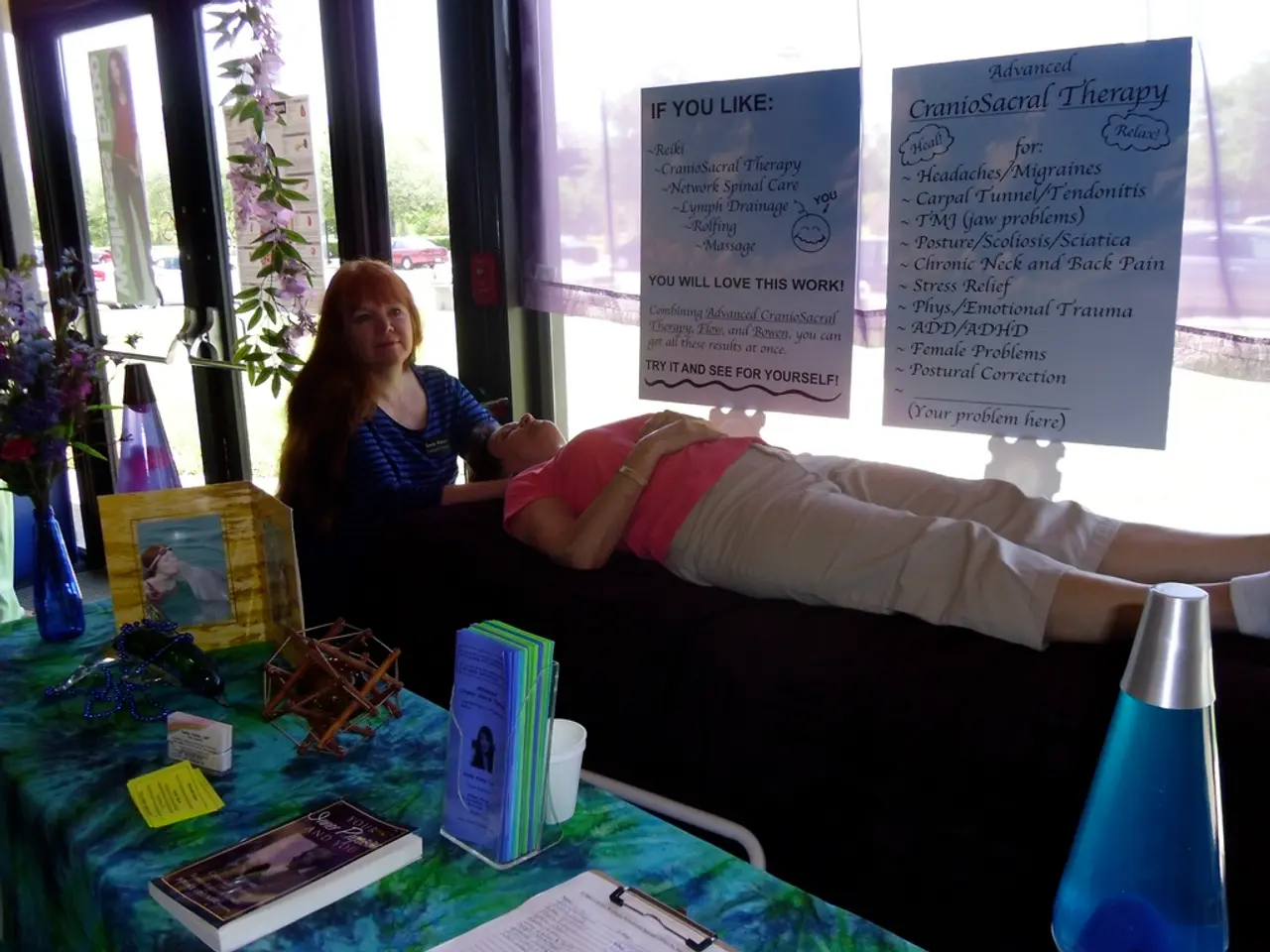Alternative Approaches to Managing Depression: Unconventional Methods Proven Effective!
Depression is a complex condition that can be managed effectively with a combination of holistic therapies. Incorporating a personalized treatment plan that includes mindfulness meditation, regular exercise, psychotherapy, dietary and herbal supplements, acupuncture, and social support can help individuals manage symptoms and improve their overall quality of life.
Mindfulness meditation, for instance, is a practice that encourages individuals to focus on the present moment, increasing awareness and acceptance without judgment. This, in turn, helps lower stress and negative thought patterns, reducing the impact of depression.
Regular exercise is another powerful tool in managing depression. Exercise releases neurotransmitters like endorphins and serotonin, which boost mood and energy levels. It also stabilizes blood sugar and improves overall physical health, supporting mental well-being.
Psychotherapy, such as cognitive-behavioral therapy (CBT), interpersonal therapy, and psychodynamic therapy, can help identify negative thinking patterns, improve relationships, and teach healthy coping strategies that reduce depressive symptoms and prevent relapse.
Herbal supplements like omega-3 fatty acids, vitamin D, saffron, lavender, passionflower, and chamomile may alleviate symptoms by modulating brain chemistry and reducing inflammation. However, it is essential to take these supplements with professional guidance to ensure safety and effectiveness.
Acupuncture and relaxation techniques promote relaxation, reduce anxiety, and alleviate physical symptoms associated with depression. By stimulating energy flow in the body, acupuncture can help promote the release of endorphins and other neurotransmitters.
Social support and healthy relationship boundaries are crucial in managing depression. Connecting with others who understand what you are going through can help reduce feelings of isolation and improve overall mood. Joining a support group or participating in group therapy can provide a safe space to share experiences and learn from others, and help individuals build a network of support and develop coping strategies.
Engaging in creative activities such as art, music, or writing can help individuals express their emotions and find joy in life, serving as a distraction from negative thoughts and rumination. Spending time in nature can also help reduce stress, improve mood, and promote overall well-being, and has been shown to reduce symptoms of depression and anxiety.
In conclusion, the most effective holistic treatments for depression include mindfulness meditation, regular exercise, psychotherapy, dietary and herbal supplements, acupuncture, and social support. These approaches promote overall well-being by addressing biological, psychological, social, and spiritual factors that contribute to depression. A tailored, comprehensive approach addressing multiple aspects of a person's life tends to be most effective for overall well-being and long-term depression management.
[1] National Institute of Mental Health. (2016). Depression. Retrieved from https://www.nimh.nih.gov/health/topics/depression/index.shtml
[2] American Psychological Association. (2013). Physical activity/exercise. Retrieved from https://www.apa.org/topics/physical-activity
[3] National Center for Complementary and Integrative Health. (2016). Mind-body approaches. Retrieved from https://www.nccih.nih.gov/health/mindbody
[4] National Center for Complementary and Integrative Health. (2018). Herbs at a glance. Retrieved from https://www.nccih.nih.gov/health/herbsataglance
[5] Anonymous. (2017). Exercise for mental health. Retrieved from https://www.ncbi.nlm.nih.gov/pmc/articles/PMC5664031/
[1] The incorporation of mindfulness meditation as a tactic for mental health management can contribute significantly to lowering stress and negative thought patterns, being particularly effective in the context of depression.
[2] Aside from mindfulness meditation, regular exercise serves as an instrumental tool in promoting health and wellness, specifically in managing depression, as it releases neurotransmitters like endorphins and serotonin, enhancing mood and energy levels.




